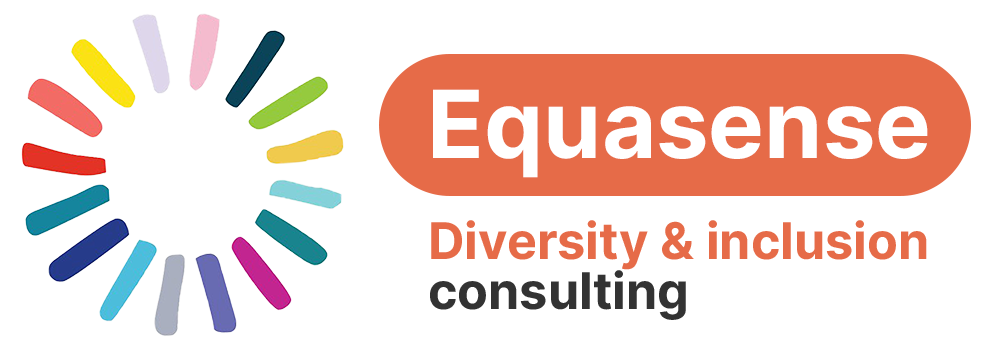Lots of organisations start their #DiversityAndInclusion actions by scrutinising their recruitment processes. When I talk to clients, if the entire conversation focusses on recruitment without any reference as to staff experience or retention, that can sometimes raise a concern that their approach might be more about demonstrating they can hire different people rather than truly thinking about becoming an inclusive organisation. However, ensuring that your recruitment process is inclusive IS an important thing to do. At Equasense, we like evidence based solutions and there is a wealth of research out there that shows that if you submit identical CVs with just different names on the top, the names that are assumed to belong to women, or to people of colour, get less interviews, and, if they are interviewed also get offered less money. In the case of the men / women research on hiring scientific technicians, this happened regardless of who (and specifically what gender groups) were on the shortlisting panel. Consciously or unconsciously, bias is getting in the way here.
Thus, number 14 on the #22WaysToBeConsciouslyInclusiveIn2022 is to trial anonymous shortlisting. There are technical solutions out there that can help. And if you already do this then consider what else you could remove from the process that might be triggering bias – school/university names, postcodes and addresses? And finally, especially with larger organisations and more people applying for roles – there is an increase in the use of some automated or machine learning sift. If you use this type of technology, it is only as unbiased as the data that it is trained on. So if you have a history of, for example, affinity bias leading to similarity amongst successful applicants, then that may well be programmed in to your algorithm. I am sure there are ways of using these things more positively, but just something to be aware of.


Recent Comments